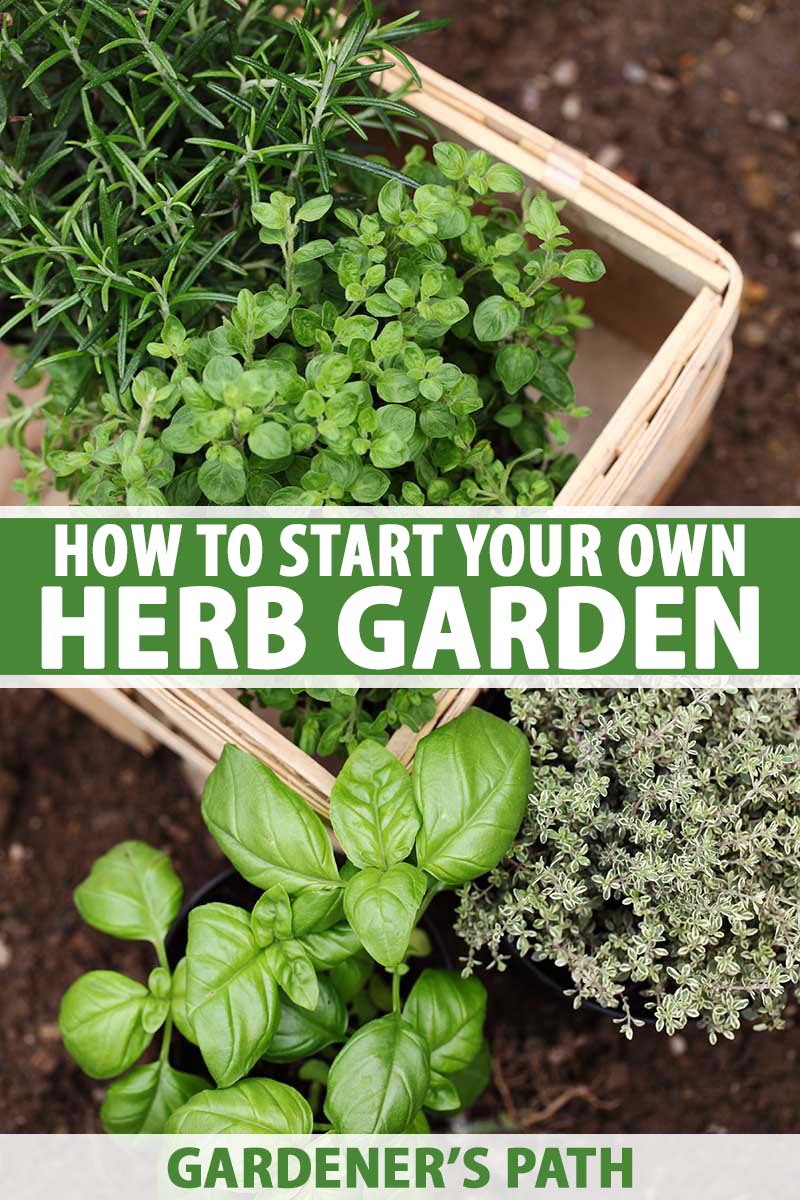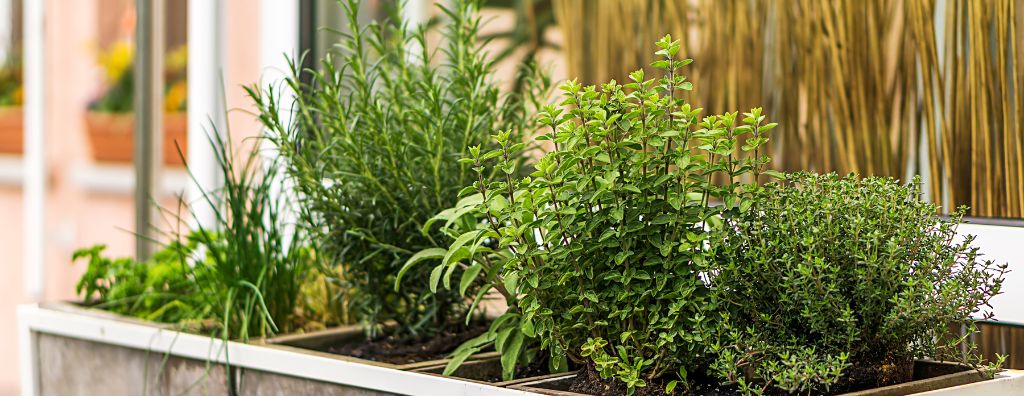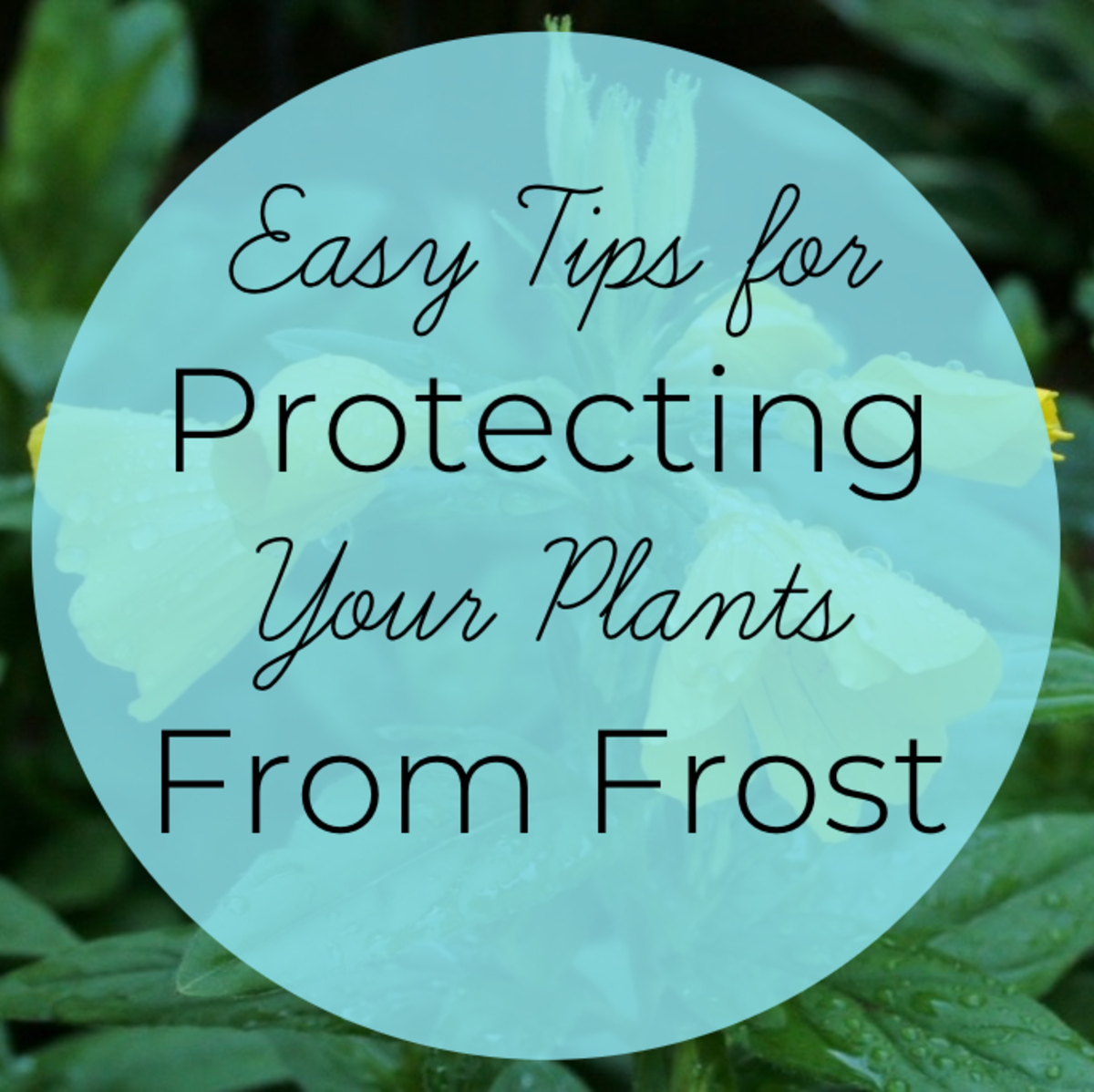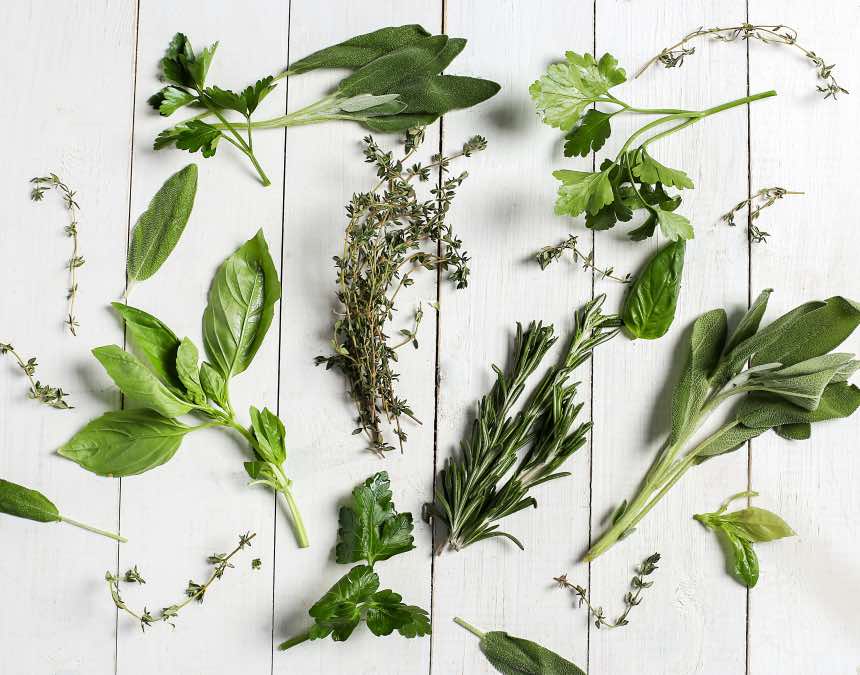Embracing the Chill: Why Winter is an Ideal Time for Herb Gardening
Winter is often misunderstood as a season of dormancy for herb gardens, but it can actually be an ideal time for growing herbs outdoors in winter. One of the primary benefits of winter herb gardening is the reduced risk of pests and diseases. Without the warm weather, many common herb pests, such as aphids and whiteflies, are less active, allowing your plants to thrive without the need for pesticides. Additionally, the cooler temperatures make it more difficult for diseases to spread, reducing the risk of fungal infections and other issues.
Another significant advantage of growing herbs outdoors in winter is the opportunity to harvest fresh herbs year-round. Many herbs, such as rosemary and thyme, continue to produce new growth throughout the winter months, providing a steady supply of fresh flavors for your cooking. This can be especially beneficial for those who enjoy cooking hearty, comforting dishes during the winter season. By taking advantage of the unique benefits of winter herb gardening, you can enjoy a bountiful harvest even in the coldest of months.
Choosing the Right Herbs for Winter Success
When it comes to growing herbs outdoors in winter, selecting the right varieties is crucial for success. Not all herbs are created equal when it comes to withstanding cold temperatures and harsh weather conditions. Hardy herbs like rosemary, thyme, and sage are ideal for winter herb gardening, as they can tolerate frost and freezing temperatures. These herbs are also less susceptible to pests and diseases, making them a great choice for winter gardens.
In addition to these hardy herbs, there are many other varieties that can thrive in cold weather. Look for herbs that are specifically bred for winter production, such as winter savory, parsley, and kale. These herbs are designed to produce new growth throughout the winter months, providing a steady supply of fresh flavors for your cooking.
When selecting herbs for winter gardening, consider factors such as cold hardiness, disease resistance, and growth habits. Look for herbs that are compact or dwarf varieties, as these will be less susceptible to wind damage and will require less pruning. Additionally, consider herbs that have a natural defense against pests, such as those with strong scents or bitter flavors.
Preparing Your Outdoor Space for Winter Herb Gardening
Before diving into the world of growing herbs outdoors in winter, it’s essential to prepare your outdoor space for the cold weather ahead. A well-prepared garden will help your herbs thrive and ensure a bountiful harvest throughout the winter months.
Soil preparation is a critical step in winter herb gardening. Herbs prefer well-draining soil that is rich in organic matter. Add compost or manure to your soil to improve its structure and fertility. This will help your herbs grow strong and healthy, even in the cold weather.
When it comes to container selection, choose pots and planters that are specifically designed for winter use. Look for containers made from materials like ceramic, terra cotta, or wood, which can withstand freezing temperatures. Avoid using plastic or metal containers, as they can crack or become brittle in the cold.
Protection from harsh weather conditions is also crucial for winter herb gardening. Consider using windbreaks, such as burlap or snow fencing, to shield your herbs from strong winds and frost. You can also use row covers or cold frames to extend the growing season and protect your herbs from extreme temperatures.
Finally, make sure your outdoor space is easily accessible and well-lit. This will make it easier to tend to your herbs during the winter months, even when the weather is cold and snowy. By preparing your outdoor space for winter herb gardening, you’ll be well on your way to a successful and productive harvest.
How to Protect Your Herbs from Frost and Freezing Temperatures
When growing herbs outdoors in winter, protecting your plants from frost and freezing temperatures is crucial for their survival. Frost can damage or kill herbs, so it’s essential to take steps to prevent this from happening.
One effective way to protect your herbs from frost is to use row covers. These lightweight, breathable fabrics allow sunlight and water to reach your plants while keeping frost and cold air out. Simply drape the row cover over your herb plants, securing it with rocks or soil, and your herbs will be protected from frost.
Cold frames are another excellent option for protecting your herbs from frost. These structures are essentially mini-greenhouses that use transparent materials to let in sunlight and trap heat. By placing your herb plants in a cold frame, you can extend the growing season and keep your herbs safe from frost.
Bringing plants indoors is also a viable option for protecting them from frost. If possible, bring your herb plants inside to a cool, bright location, such as a sunroom or greenhouse. This will provide them with the protection they need to survive the cold winter months.
In addition to these methods, there are several other techniques you can use to protect your herbs from frost. Mulching around the base of your plants can help retain heat and prevent frost from penetrating the soil. You can also use anti-desiccant sprays or waxes to protect your herbs from wind and cold damage.
By taking these steps to protect your herbs from frost and freezing temperatures, you can ensure a healthy and thriving winter herb garden. With a little creativity and planning, you can enjoy fresh, fragrant herbs all year round, even in the dead of winter.
Winter Care and Maintenance for Outdoor Herb Gardens
When growing herbs outdoors in winter, regular maintenance is crucial to ensure the health and productivity of your plants. During the winter months, herbs require special care to thrive in the cold weather.
Watering is an essential aspect of winter herb garden maintenance. Herbs need consistent moisture, especially during periods of cold weather. However, it’s essential to avoid overwatering, which can lead to root rot and other problems. Check the soil regularly, and water only when it feels dry to the touch.
Pruning is another critical task for winter herb garden maintenance. Prune your herbs regularly to promote bushy growth and prevent them from becoming leggy. Remove any dead or damaged leaves or stems, and shape your plants to maintain their desired form.
Fertilizing is also important during the winter months. Herbs require nutrients to grow and thrive, even in the cold weather. Use a balanced fertilizer, and apply it according to the manufacturer’s instructions. Avoid overfertilizing, as this can damage your plants.
In addition to these tasks, it’s essential to monitor your herbs for signs of pests or diseases. Check your plants regularly for signs of infestation or infection, and take action promptly if you notice any problems. Use organic pest control methods whenever possible, and remove any infected plants to prevent the spread of disease.
By following these winter care and maintenance tips, you can ensure a healthy and productive outdoor herb garden, even in the dead of winter. With regular watering, pruning, fertilizing, and pest management, you’ll be enjoying fresh, fragrant herbs all year round.
Extending the Harvest: Tips for Growing Herbs in Cold Weather
One of the biggest advantages of growing herbs outdoors in winter is the opportunity to extend the harvest season. With the right techniques and tools, you can enjoy fresh, fragrant herbs all year round, even in the dead of winter.
One way to extend the harvest season is to use cold frames or hoop houses. These structures use transparent materials to let in sunlight and trap heat, creating a microclimate that’s perfect for growing herbs in cold weather. By using cold frames or hoop houses, you can extend the growing season by several weeks or even months.
Another technique for extending the harvest season is to force herbs to grow in cold weather. This involves providing your herbs with the right conditions to thrive, such as warm temperatures, high humidity, and plenty of light. By forcing your herbs to grow, you can enjoy a continuous harvest of fresh herbs, even in the winter months.
Choosing the right herbs is also crucial for extending the harvest season. Look for hardy, cold-tolerant herbs like rosemary, thyme, and sage, which can thrive in cold weather. These herbs are perfect for growing herbs outdoors in winter, and can provide a continuous harvest of fresh herbs all year round.
In addition to these techniques, there are several other tips and tricks for extending the harvest season. For example, you can use row covers or other protective measures to shield your herbs from harsh weather conditions. You can also use mulch or other soil amendments to retain heat and moisture in the soil, creating a more favorable environment for your herbs to grow.
By using these techniques and tools, you can enjoy a continuous harvest of fresh, fragrant herbs all year round, even in the dead of winter. Whether you’re a seasoned gardener or just starting out, growing herbs outdoors in winter is a great way to extend the harvest season and enjoy the many benefits of fresh herbs.
Common Challenges and Solutions for Winter Herb Gardening
When growing herbs outdoors in winter, gardeners may encounter several challenges that can impact the health and productivity of their plants. However, with the right knowledge and strategies, these obstacles can be overcome, and a thriving winter herb garden can be achieved.
One common challenge is pests, such as aphids, whiteflies, and spider mites, which can infest herbs even in the winter months. To combat these pests, use organic pest control methods like neem oil, insecticidal soap, or horticultural oil. Additionally, introduce beneficial insects like ladybugs or lacewings, which prey on pests and help maintain a balanced ecosystem.
Diseases like root rot, leaf spot, and powdery mildew can also affect herbs in the winter. To prevent these diseases, ensure good air circulation, water plants properly, and remove any infected plants to prevent the spread of disease. Fungicides can also be used to treat infected plants.
Weather damage is another common challenge when growing herbs outdoors in winter. Harsh winds, frost, and freezing temperatures can damage or kill herbs. To protect your plants from weather damage, use row covers, cold frames, or bring plants indoors during extreme weather conditions.
Soil quality can also be a challenge in winter herb gardening. Cold weather can cause soil to become waterlogged, leading to root rot and other problems. To overcome this, use well-draining soil, and add organic matter like compost or manure to improve soil structure and fertility.
By being aware of these common challenges and taking steps to overcome them, gardeners can successfully grow herbs outdoors in winter and enjoy a bountiful harvest of fresh, fragrant herbs all year round.
Enjoying the Fruits of Your Labor: Using Fresh Winter Herbs in Cooking
One of the greatest joys of growing herbs outdoors in winter is being able to harvest and use fresh, fragrant herbs in cooking. Winter herbs add a burst of flavor and freshness to a variety of dishes, from hearty stews and soups to roasted meats and vegetables.
Rosemary, thyme, and sage are particularly well-suited to winter cooking, and can be used in a range of recipes. Try adding fresh rosemary to a roasted chicken or lamb, or using thyme to flavor a warm, comforting soup. Sage is a natural pairing with winter squash and root vegetables, and adds a savory flavor to roasted meats.
In addition to these classic winter herbs, other options like parsley, cilantro, and dill can also be used to add fresh flavor to winter dishes. Try adding a sprinkle of fresh parsley to a warm salad, or using cilantro to flavor a hearty stew.
When using fresh winter herbs in cooking, it’s essential to handle them gently to preserve their flavor and aroma. Chop or tear herbs just before using, and add them to dishes towards the end of cooking to prevent them from losing their potency.
Some recipe ideas to get you started include a Winter Herb Roasted Chicken, featuring rosemary, thyme, and sage; a hearty Winter Vegetable Stew, flavored with parsley and cilantro; and a fragrant Winter Squash Soup, infused with the warm, savory flavor of sage.
By incorporating fresh winter herbs into your cooking, you can add a new level of flavor and freshness to your winter dishes, and enjoy the fruits of your labor in the kitchen.






/124764037-56a6d3685f9b58b7d0e4ffd8.jpg)
:max_bytes(150000):strip_icc()/growing-herbs-in-pots-getting-started-3876523-container-28b50d1564ec4ebfbc23b1f9718e8917.jpg)

